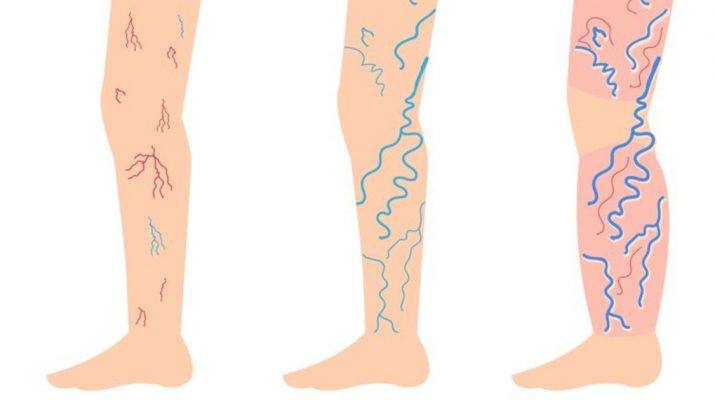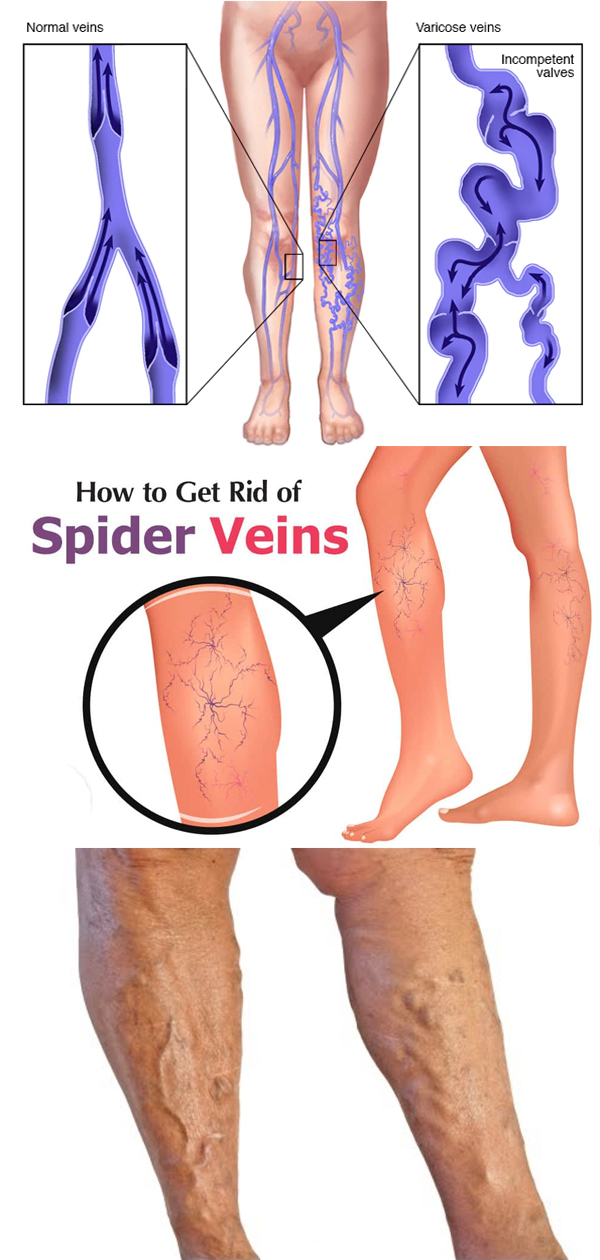Spider or varicose veins are not serious health issues, but they can be painful and unpleasant to the eye.
Varicose veins are twisted, enlarged veins near the surface of the skin, which are caused by obesity, pregnancy, and prolonged periods of standing. They lead to pain and burning in the legs, as well as swellings, skin changes, and inflammation.
Spider veins are smaller, usually blue, red, and purple in color, and can also occur on the chest and face. More than 40 million people in the U.S. suffer from these conditions, and they usually treat them using treatments, creams, and even surgeries.
Yet, the following simple tips will help you treat them completely naturally:
1. Loose Fitting Clothes
To promote healthy circulation, wear loose fitting clothes.
2. Flat Heels
Always choose flat shoes, as heels higher than 3cm promote poor blood circulation that can lead to vein damage.
3. Exercise
Make sure you exercise regularly and control your body weight in order to lower the risk of varicose veins.
4. Spicy Food
Spicy foods, like onions, garlic, and cayenne pepper, boost the circulation of blood and thus fight varicose and spider veins.
5. Elevate Feet
To reduce the pressure in the legs, make sure you keep the legs elevated at a height a bit above the heart for at least 10 minutes daily.
6. Apple Cider Vinegar
To boost blood circulation and reduce the swellings, apply soaked gauze in apple cider vinegar on the affected areas for 30 minutes.
7. Cold Showers
Cold showers will help you constrict the veins and relieve pain.
8. Compression Stockings
Compression stockings are an effective way to fight spider and varicose veins.
9. Don’t Cross Legs
The practice of crossing the legs decreases the circulation in the legs, so try to avoid it.
10. No Alcohol or Smoking
Smoking decreases blood circulation, while alcohol dilates blood vessels.
Moreover the following dietary tips will help you treat varicose veins:
- The best foods for varicose veins are those that contain Rutin, a flavonoid which reduces the fragility and permeability of capillaries, s it lowers the risk of developing new varicose veins. These include grapes, apples, apricot, blackberries, and cherries
- Drink plenty of water to keep the body hydrated and prevent blood clots
- Eat foods rich in fiber, and avoid white flour, white rice, and sugar
- Replace white rice with brown or wild rice. Brown rice lowers blood pressure and reduces the risk diabetes
- Replace white flour with whole wheat flour, as it contains all the vitamins, minerals, proteins and fiber naturally present in the grain
- Eat fruits instead of sugary snacks, that will provide fiber and keep you full longer


